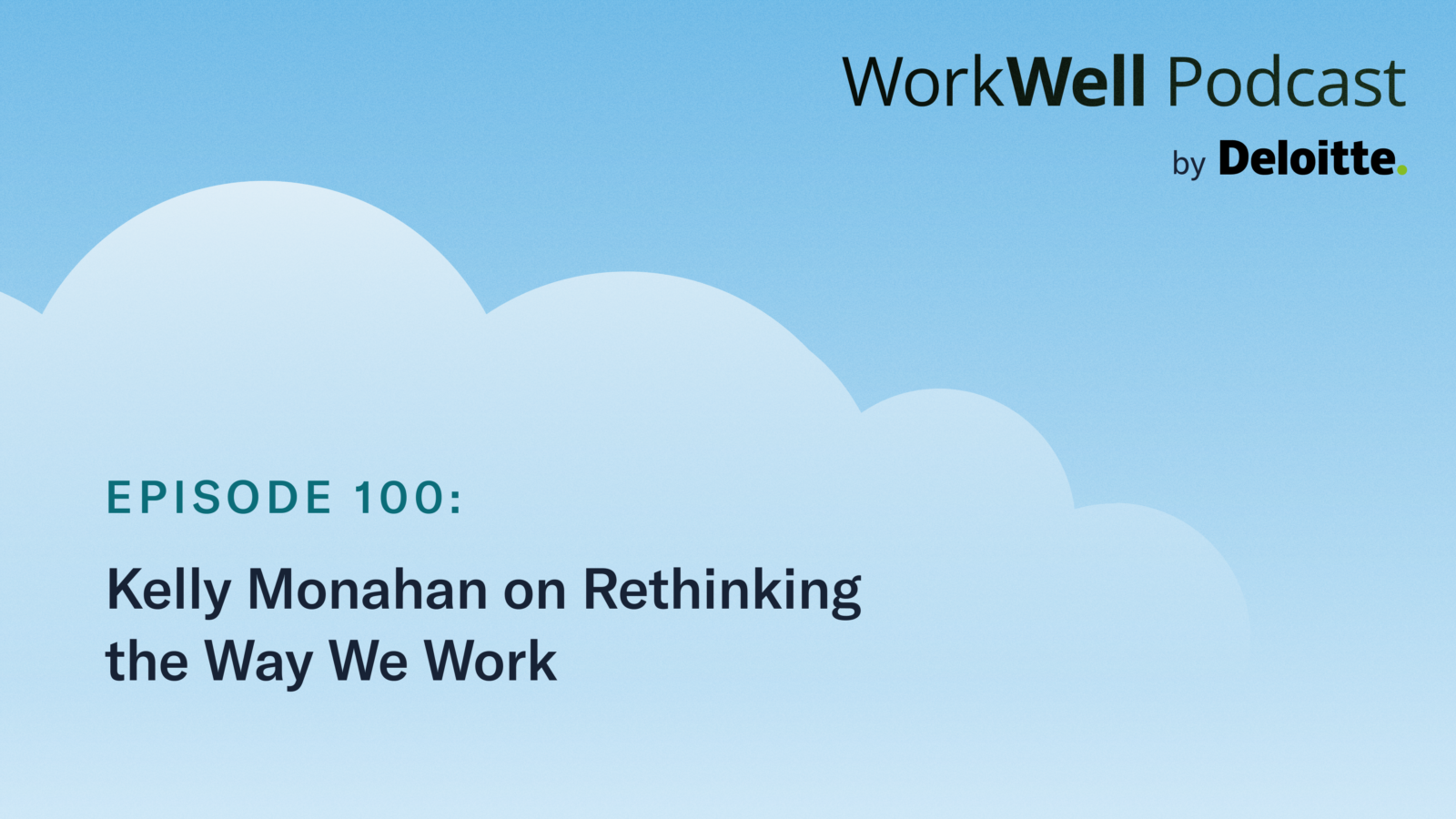In the WorkWell Podcast, by Deloitte, Jen Fisher — Human Sustainability Leader at Deloitte and Editor-at-Large, Human Sustainability at Thrive Global — sits down with inspiring individuals for wide-ranging conversations about how we can develop a way of living and working built on human sustainability, starting with ourselves.
This week, Kelly Monahan, Managing Director of the Upwork Research Institute, discusses strategies to create working environments that power the growth of organizations and the people who work for them, so everyone benefits.
On meaningful work in the post-pandemic era:
“The pandemic forced people to work differently, and I became optimistic that this might be the breakthrough moment for distributed or remote work, so we can lead in different ways and have conversations centered around well-being in the workplace. What I’m concerned about today: how do we make sure we don’t revert back to pre-pandemic norms? How do we create organizational systems that still enable human connection? A remote environment should be a great equalizer, because there’s no top floor office — we’re all in the same size Zoom box. But at the same time, in terms of human connection, it’s hard to listen in a remote environment because we’re not physically together.”
On encouraging employees to disconnect from technology:
“As organizations and leaders, we have to be explicit in the guardrails we put on the use of technology. It’s not our fault — technology and systems are wired so it’s too easy to pick up that phone and check a message, and check back into work at 10 o’clock at night. And we’ve got to be careful, because that has become normalized. I’m hoping companies that are leaning into distributed work and enabling flexibility for employees are also setting parameters around technology use and making sure that it’s benefiting the individual — as opposed to just increasing profits. If big companies that adopt these new behaviors start winning in the market, I think others will follow.”
On rethinking the work week:
“We don’t need a 40-hour week mindset anymore because that’s not how we’re working. Yet we still have these like faux paradigms: nine to five, Monday through Friday, 40 hours a week. I’m trying to drive a different level of conversation that proves that working in a way that’s sustainable is good for people and businesses. To me it’s about having a new north star metric around productivity.”
On Gen Z’s approach to work:
“There’s a significant difference in the expectations of our younger workers. And it brings me a lot of hope actually, because they are demanding that things be done differently. And they will choose not to work at an organization if it doesn’t align with their values and needs. They want a variety of tasks, they want a variety of income sources. They think about employment very differently. For example, they can be an influencer and have a side job on a social media platform. It’s interesting to think through how we as leaders can enable this newfound flexibility because the amount of creativity that comes from that is powerful. It can lead us to a whole new way of thinking about work today.”
To hear more from Jen and Kelly, listen to this full episode of WorkWell here, available wherever you get your podcasts. Visit the WorkWell library for the full collection of episodes.


